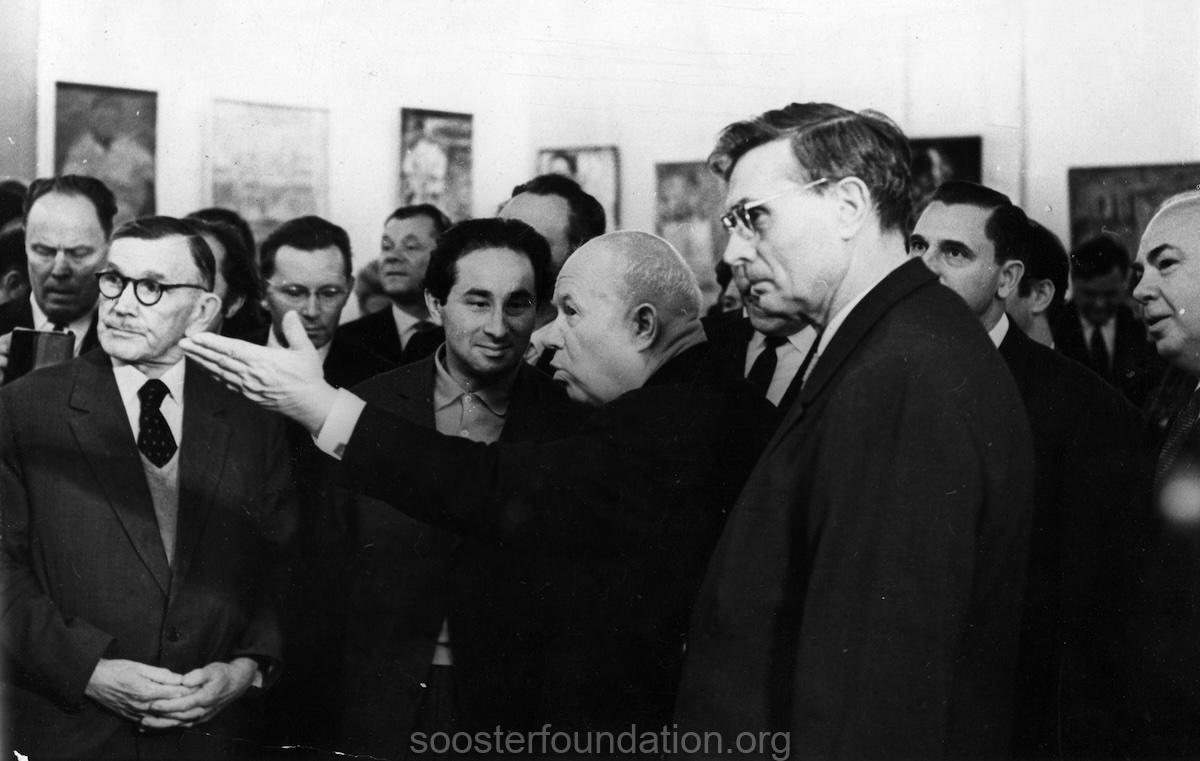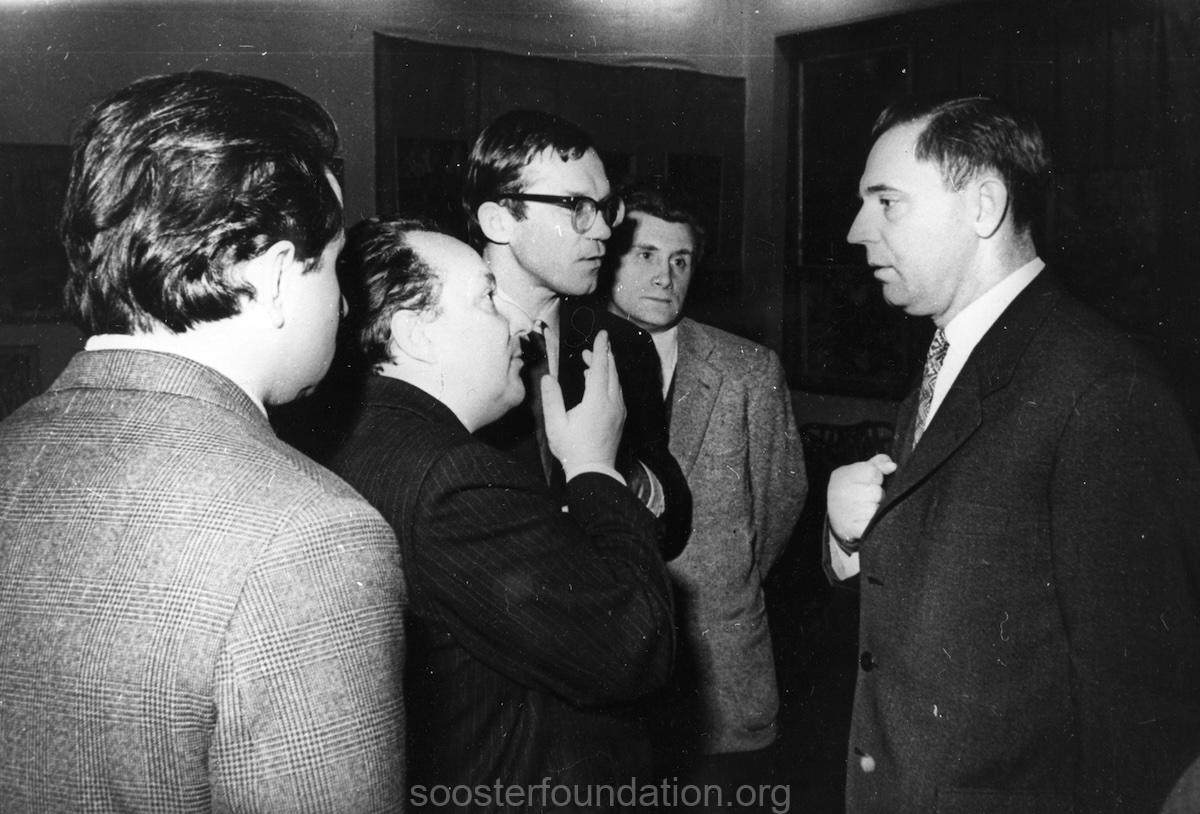"The letters (in Russian) retain the original spelling and punctuation—after all, Ülo began learning Russian only in captivity at the age of 25, and his teachers were Georgians who worked with him in the camp's fire brigade."
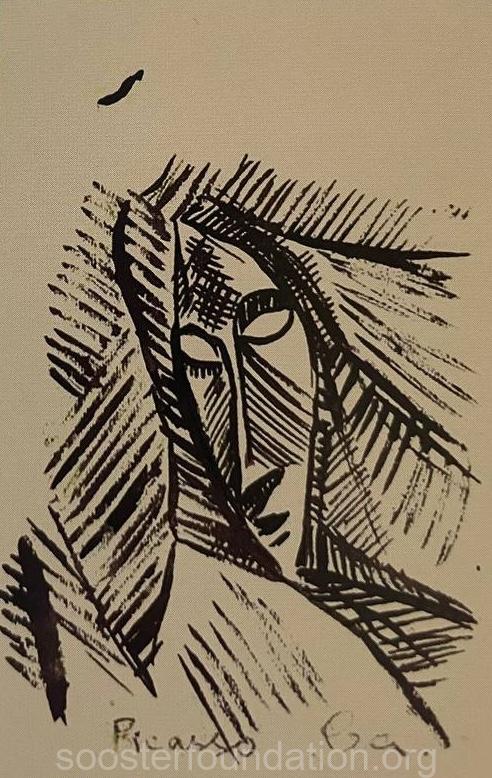
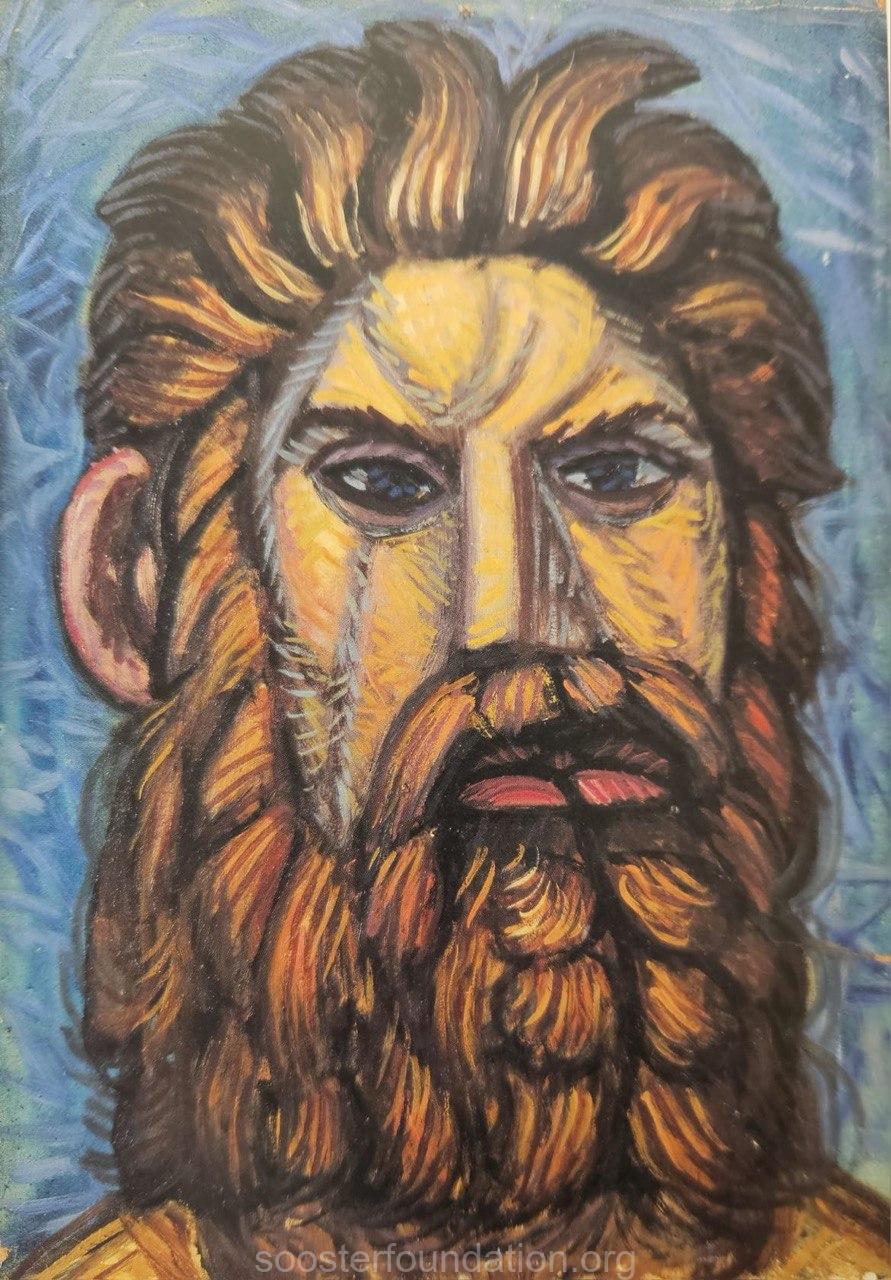
THE LETTERS OF ÜLO SOOSTER TO ANDREY SOLOVEY
1950
"Salud!
I specifically chose pink paper to earn your favor, so please don’t be upset.
I will, of course, blame the silence on the huge amount of work I have, although in reality it’s due to anal eroticism. Freud claims that if a child has a habit of holding in their feces (to later enjoy the strong sensations of defecation), as an adult, they will rarely, but thoroughly, reply to letters. So, it turns out – I suffer from the mischief of early youth.
I have long since read both books on cybernetics. Wiener is very interesting; it was extremely enlightening to read something so pessimistic. I won’t speculate about it, as I want to hear your thoughts. Do share what conclusions you’ve drawn from it regarding art. However, Wiener’s book "Cybernetics" is due out soon, without society.
However, Wiener’s book "Cybernetics" is due out soon, without society.
There was an artist from Estonia whom I knew, and I accompanied her for a few days at the foreign literature library in Moscow. The books I found there were simply astonishing. First, a photo album titled "The Personal Life of Picasso." About 300 photos – how he lives, how he dances in the morning in his wife’s nightgown on the veranda, how he eats, and how he creates works from fish bones. Extremely interesting and instructive. Then I found a book about Bernard Buffet (a young Frenchman, very popular), and I liked it. I found good books about Léger and browsed through a whole bunch of magazines (The Studio, Art News, etc.).
Everyone is intensively involved in abstract art. Such inventiveness! Even if abstract art eventually dies out, it has gained a lot of new techniques."

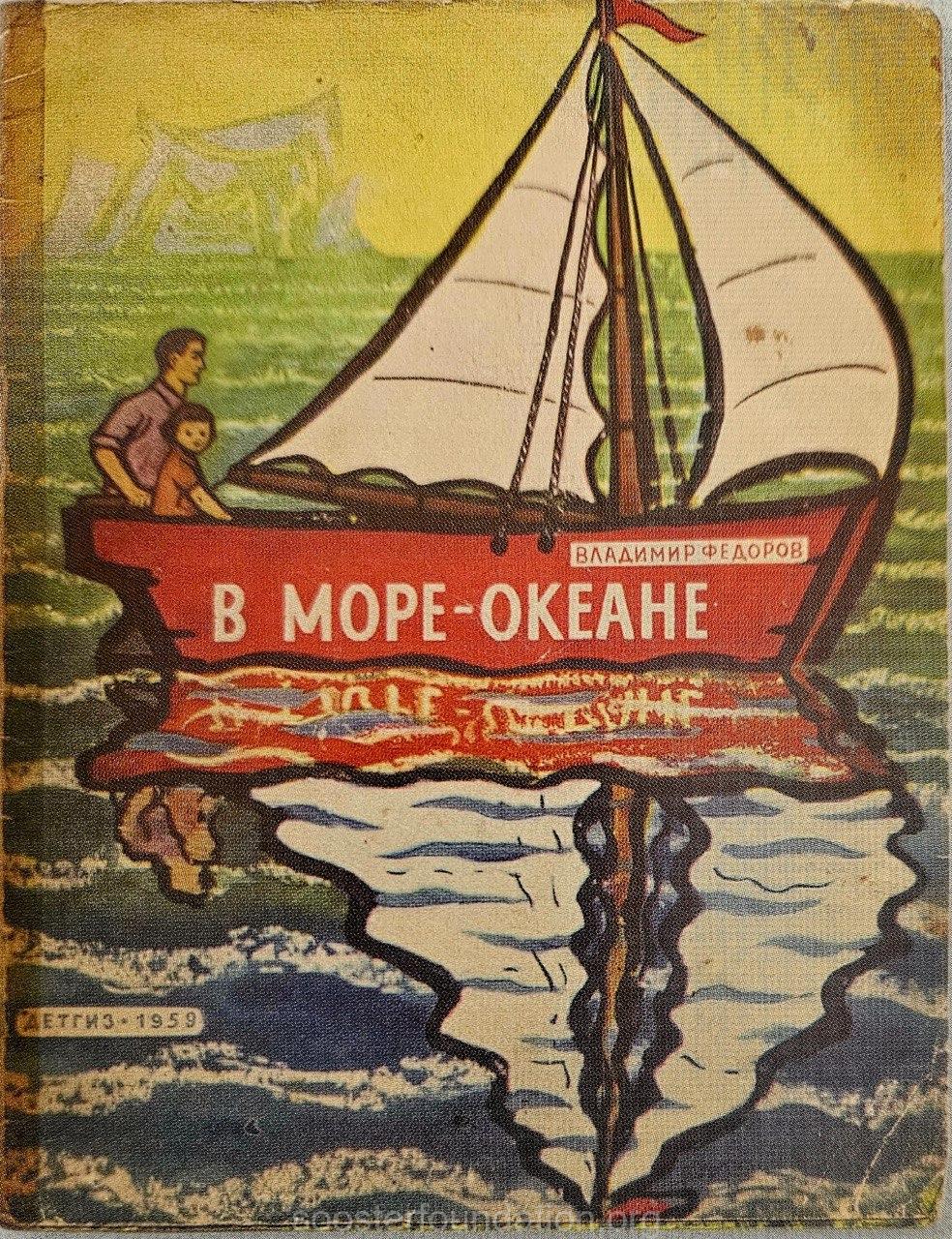
11 dec.
"See, Andryusha, it's been about four days since I started this letter. I had to finish a book, working around the clock. It seems to have turned out well. It looks like I made some progress.
A Czech book exhibition is opening soon. As you’ve seen for yourself, the Czechs produce good books. There will also be an exhibition of Swedish graphics and art from socialist countries. So Poland, Czechoslovakia, and Hungary might be interesting.
Whenever something so enticing comes up, I always regret that you’re not in Moscow. There’s so much we could talk about, debate, and it would be so beneficial for me, and maybe for you too – but here you are stuck somewhere at the end of the world. When will you come back? You know, then we could spend a week visiting libraries and combining pleasure with utility.
I’m reading Van Gogh’s letters – what a devilishly strange character he was. Not at all like I imagined. The number of letters he sent to his brother is astonishing. He clearly didn’t suffer from constipation in his early years. But he had an Oedipus complex with his nanny, as he was attracted to older women, those whose lives had passed. Nevertheless, he was confident he wouldn’t go mad or harm himself – and yet he did both.
I plan to go to Estonia for Christmas. I’ll return at the beginning of January. I hope to find your letter then and, I promise, to respond right away. Let’s write often, like Van Gogh, and try to discuss interesting things to fill the absence of personal contact or, as they say, ‘face-to-face meetings’. Write about what’s new in science and technology.
Big greetings to you and your wife from me. Ü."

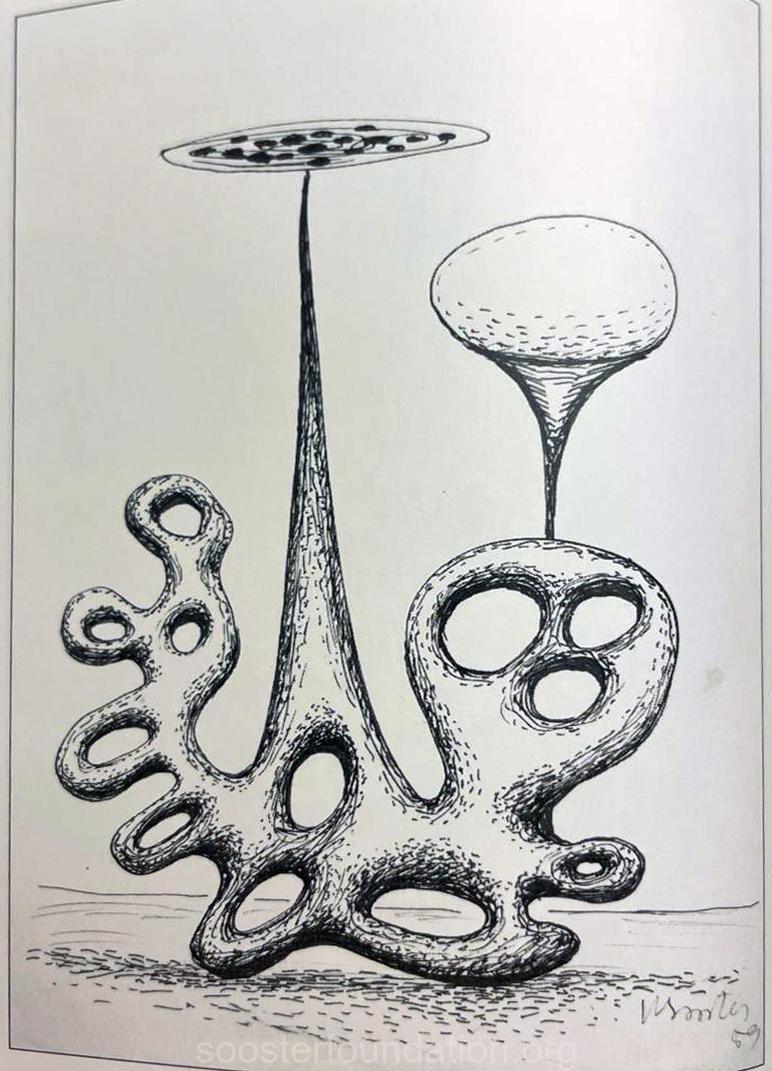
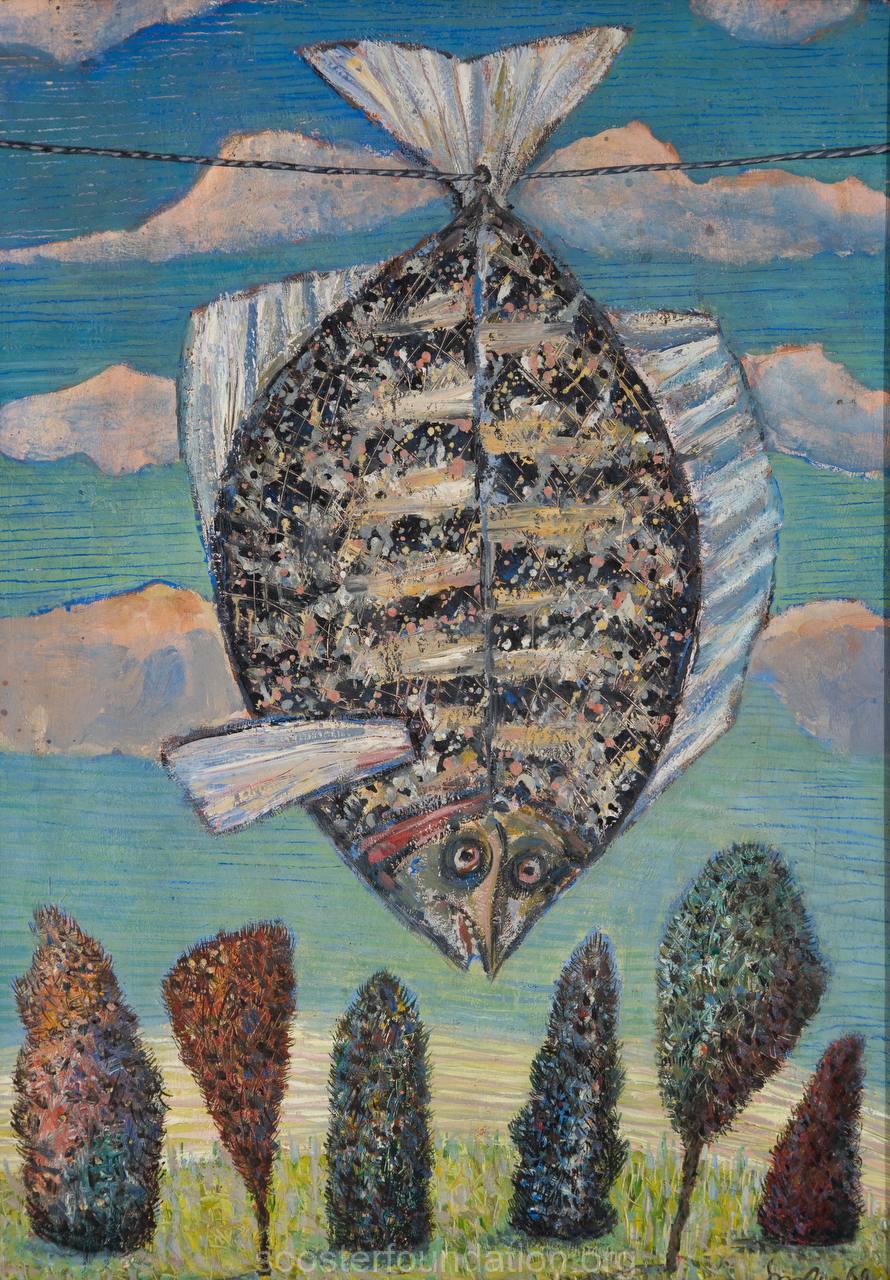
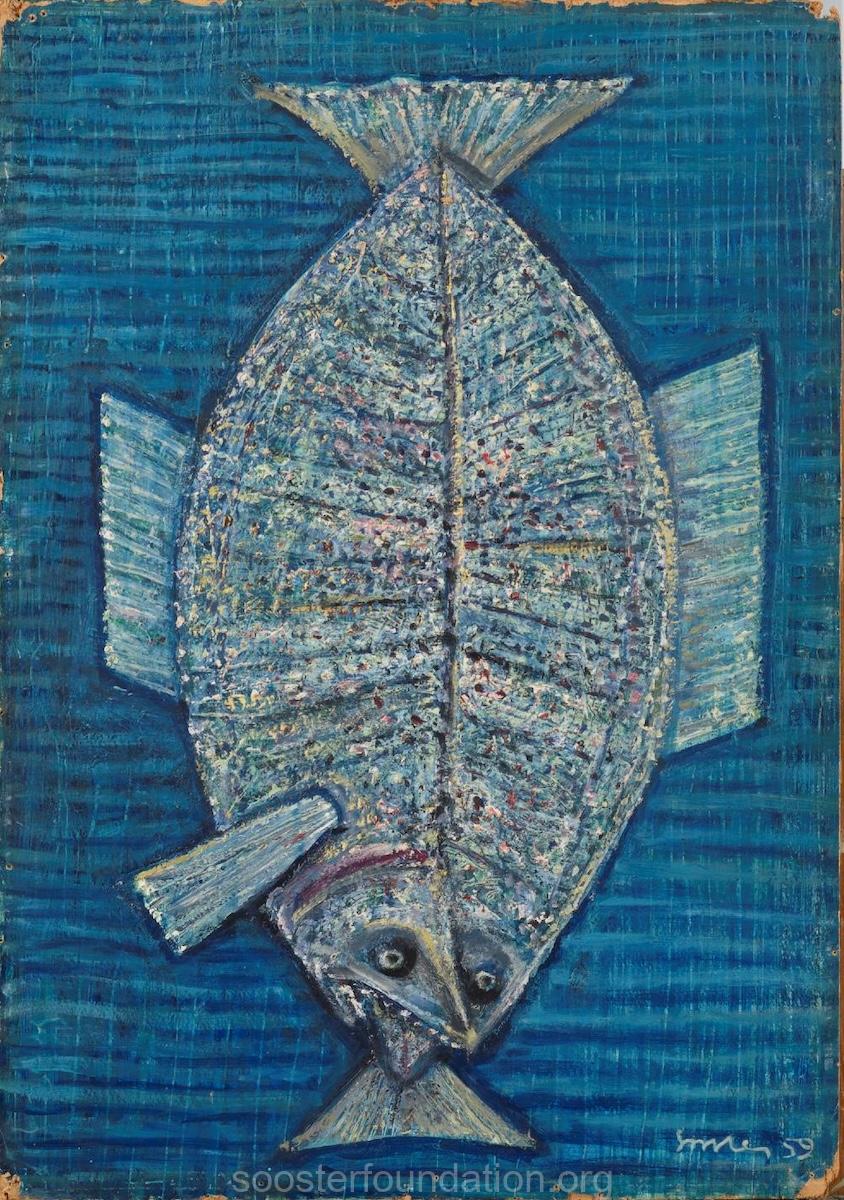
2.2.59
"Hi, Andrey!
I received your angry letter quite a while ago, but even fear doesn't work on natural laziness.
First of all, I’m passing on a brief interview with Mr. Sooster. So, we went with the whole family to Estonia and spent Christmas and New Year there. Then I arrived earlier than the others and found a bunch of unfinished tasks, which I’m still dealing with to this day. During this time, I had my good friend from Tallinn visiting me, and we went to all the exhibitions and museums intensively. The exhibition of socialist countries was very educational—how terrifying art can be and how beautiful it can be (Poles, a few Czechs). Among the Poles, there’s one son of a bitch, a certain Duniknovsky, a sculptor and painter, who imagines himself a genius and is, in reality, an old fool. He creates a terrible pile of nonsense under the guise of modernism, and people don’t understand—those against it criticize him fiercely, and along with modernism, while the defenders desperately defend him too—they don’t care as long as it’s old-fashioned. There was also an exhibition of Marquet—which turned out to be the best among the works that merchants once brought to Russia. However, the collection of Marcel Marquet (probably his son) was awful—probably from the works that the old man couldn’t sell.
Have you seen the 'UNESCO Courier' about the new UNESCO building? It’s amazing that such an international endeavor was done so boldly. Our contemporaries are really impressive. In the past, the Renaissance figures used to say they were very glad to live in such an era, but I, as a person of the 20th century (maybe even with a capital ‘P’), feel a sense of pride.
Wiener’s 'Cybernetics' has been released. I’ve seen it in hand and am struggling to make sense of it—it’s too full of higher mathematics. I hope you’ve already figured out this book and can explain it to me sometime.
I bought a book by some German on German existentialism, but it turned out to be utter junk.
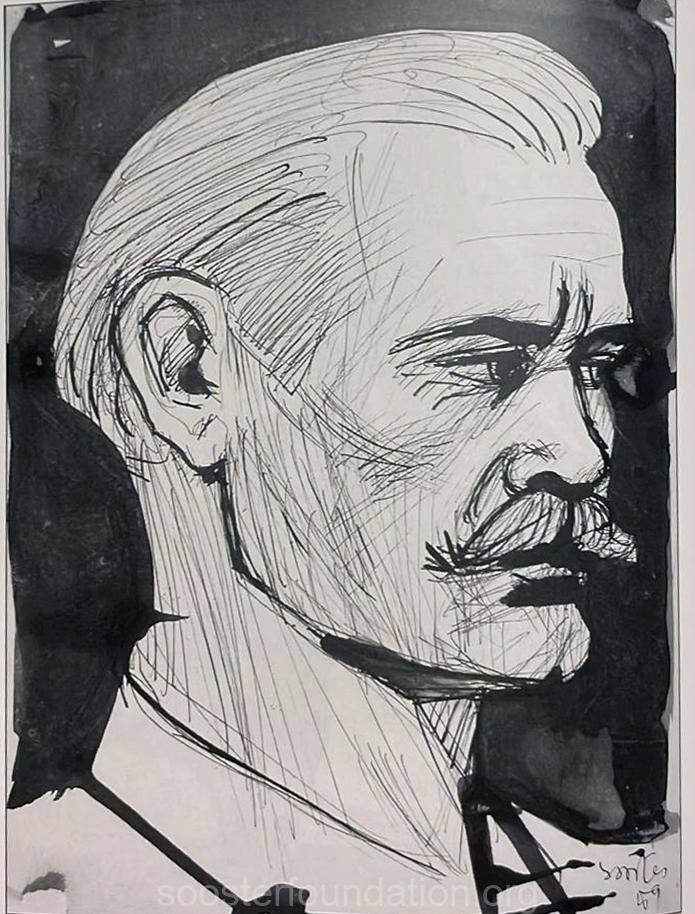
"I haven't seen Romka during this time, although Lida arranged for him to come over. But he was at the height of his habits and, of course, didn't show up. They say he's getting married or has already done so, that brute. Do you see Nikolai sometimes? Because of my Freudian complex, I can't bring myself to write to him, although I want to and my conscience is tormenting me. If you see him, send him lots of regards and explain that it's not my fault at all, but Freud's."
Are there any chalk quarries around Sverdlovsk? I’m working on a book about chalk and might need to go on a business trip. I really have a strong desire to visit Sverdlovsk someday, and if there’s a suitable opportunity, I’ll come to see you.
How are you doing and how is your family? Have you become a parent yet? They’ve prepared a dowry for your future child, and you’ll receive it soon. All the women are thrilled that someone else has been caught and are working hard.
In general, we need to take care of the population of the 21st century, so maybe we didn’t do so foolishly.
If you have any requests or tasks, let me know—everything will be done.
Nothing else comes to mind right now, so let’s leave it at that. I hope for a quick reply, otherwise our correspondence won’t work out well.
Warm greetings to you and your wife! Sela!"


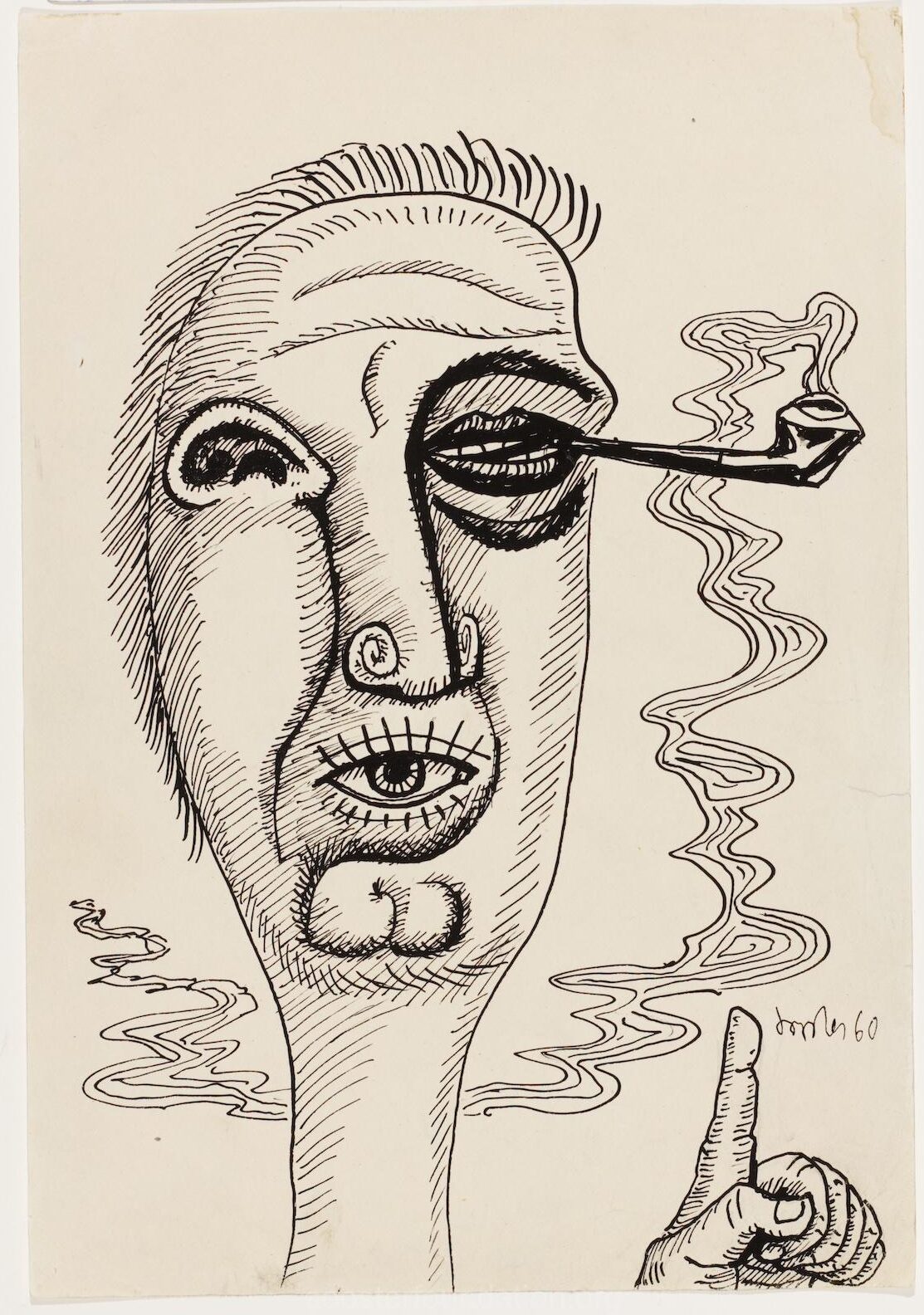
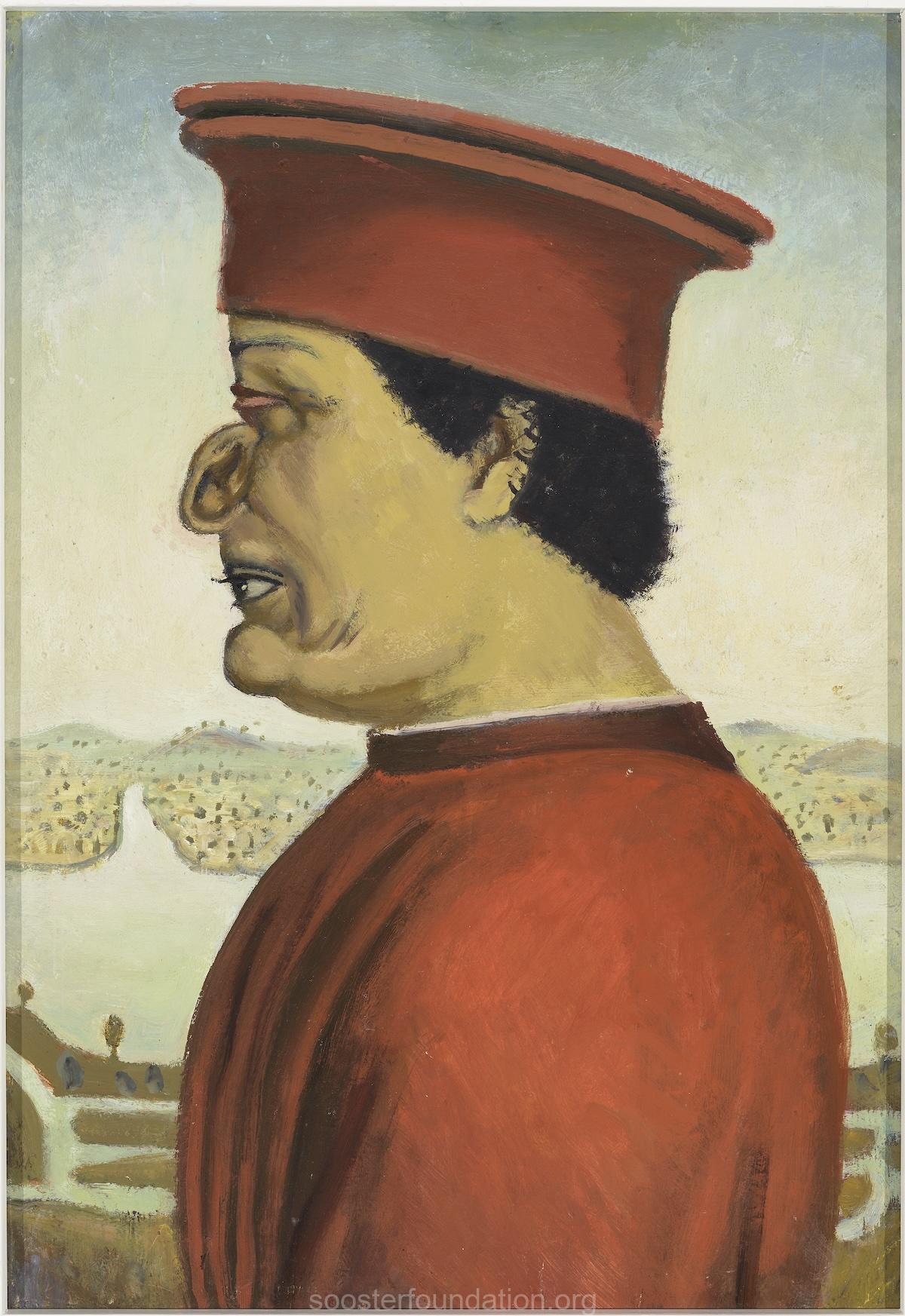
"Hi, Dad!
Congratulations and my condolences! During the day you must be glowing, but at night I genuinely feel for you. It’s nothing, though, that it’s a girl—my Tenno says thank you. Did you notice how it sounds—Olga Solovey? That’s a singer's name, almost a stage name. However, you pretend to be dissatisfied, but in reality, you’re melting with pleasure.
I’ve been reading Lefebvre’s 'Introduction to Aesthetics.' He’s a French communist, trying to prove French socialist realism (or French neorealism). Since the book turned out to be quite interesting, he was later declared a revisionist. His aesthetics can even be applied to Tachism, not to mention abstraction, although he seems to be trying to fight against them. The most interesting claim he makes is that the prevailing feeling among artists now—of detachment, loneliness, and restraint—comes from too much freedom. All the myths, symbols, and the like have fallen away, and the world is presented to the artist as it is, but they don’t yet know how to deal with it. He’s lying, though, because new art has been created for 50 years already, not the decadent kind, as he and many others think. If you come across this book and have the time, read it—it’s worth the effort.
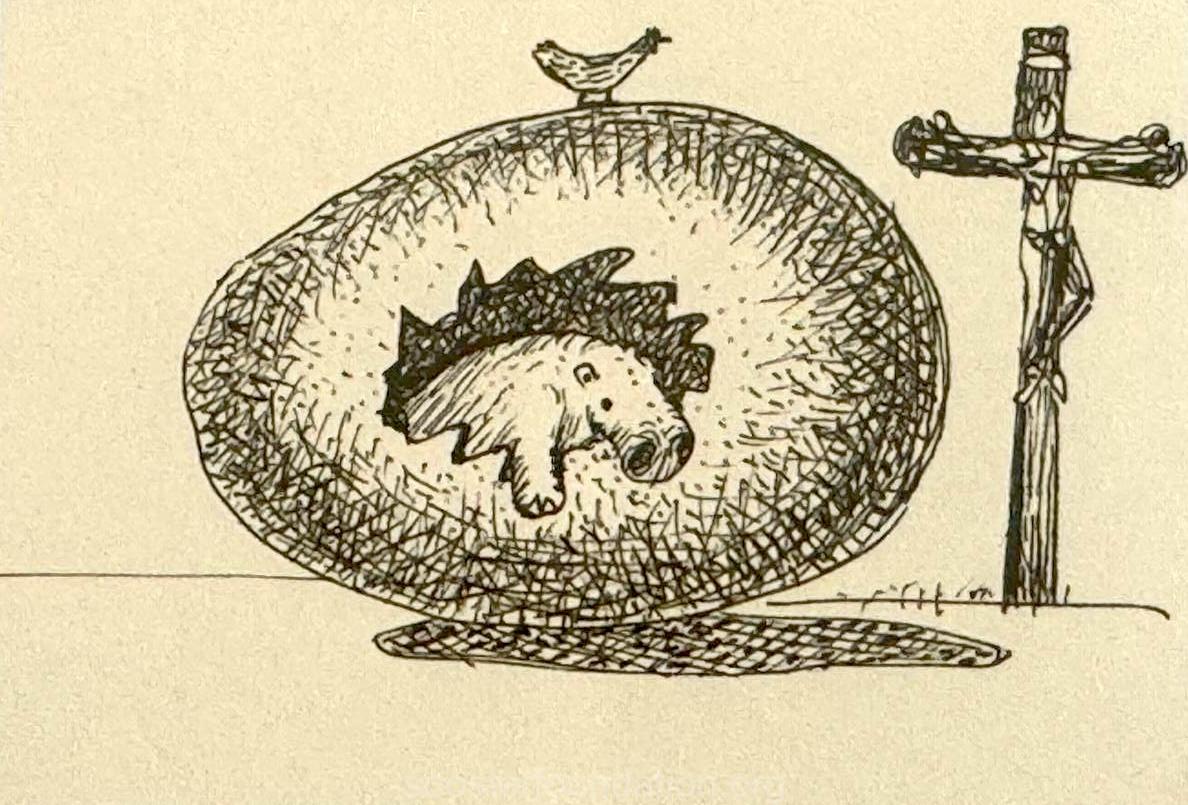
Your advice on studying mathematics is good, but the only person who could help me get accustomed to technical education is you. Yet you even doubt whether you’ll come here in the summer, even though there will be an exhibition on the American way of life. Will you really stay there? Hat of what color do you want? Write to me, and I’ll send it.
How difficult it is to take a step into the unknown. Tell me, is a fundamental discovery expected in science anytime soon, or will they continue to develop what's already been achieved? In art, it seems we’ve reached the limits of the avant-garde, and the time for synthesis should be approaching. But who knows, maybe that’s not the case.
"You know, tachism, or informism, is the art of existentialism—a direct touch with reality, without the aid of reasoning or concepts. We ourselves are pieces of reality, and we should grasp reality not through interpretations but through our most primal instincts, not through thinking, but through being. So it’s not 'Logito, ergo sum,' but 'Sum, ergo sum.'"
In general, it would be good to directly connect a brain to a BESM (computer), maybe then we could understand something. That’s not a bad idea, if only it were possible. Then all this preliminary work to translate everything into machine language wouldn’t be necessary. According to Wiener, the brain also works on a binary system (yes-no), just like an electronic computer. That would be amazing!
Well, that’s enough for today. I wish all kinds of success to the little one, her mother, and you, Dad! Tenno sends a kiss to Olga! Write soon! Greetings! Yours, Ü."

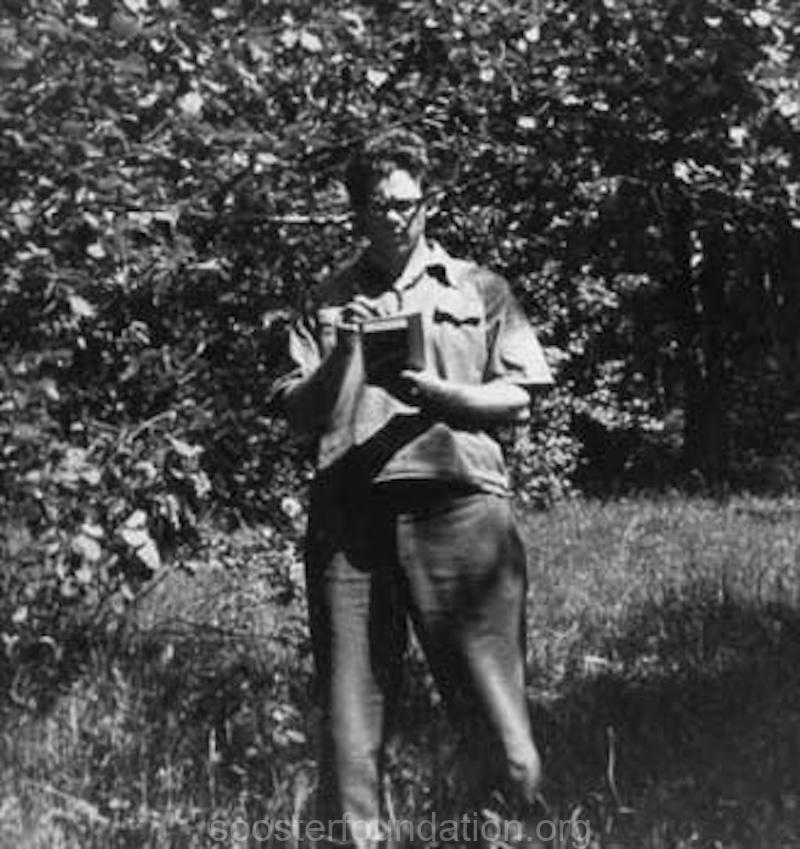


1.1.61
"Hello, Andrey and the whole family!
I bet you're angry. But if you knew how much guilt I’ve been going through, you'd feel sorry for me. Oh, how hard it is not to write, and over time it becomes even scarier than writing. I've finally reached the point where I had to.
So, we’re still living the same way, this time we're staying at a dacha along the Belarus Highway, 25 km, a pond, etc. My mother is visiting me, and so on. I’ve been working a lot. My real work (i.e., free creative work) is now focused on abstraction. Since the new year, I’ve switched to it, and everything else seems uninteresting.
I haven’t gone further, and I probably won’t, because Tachism doesn’t seem to be for me, and in general, it’s clearly the essence of entropy, and there's already too much of that.

I’ve been reading Koss, who takes a very pessimistic view of the possibilities of cybernetics. Have you read it? Then I read a collection of articles on aesthetics, compiled by an American, translated without abridgment. There are some very interesting things in it, for example, articles by Freud, Reed, Bergson, and others. It’s hard to get hold of, as it was only published for those who are supposed to refute everything in it. That, of course, is no easy task, because the arguments are very convincing. Right now, I’m reading Freud’s The Interpretation of Dreams."

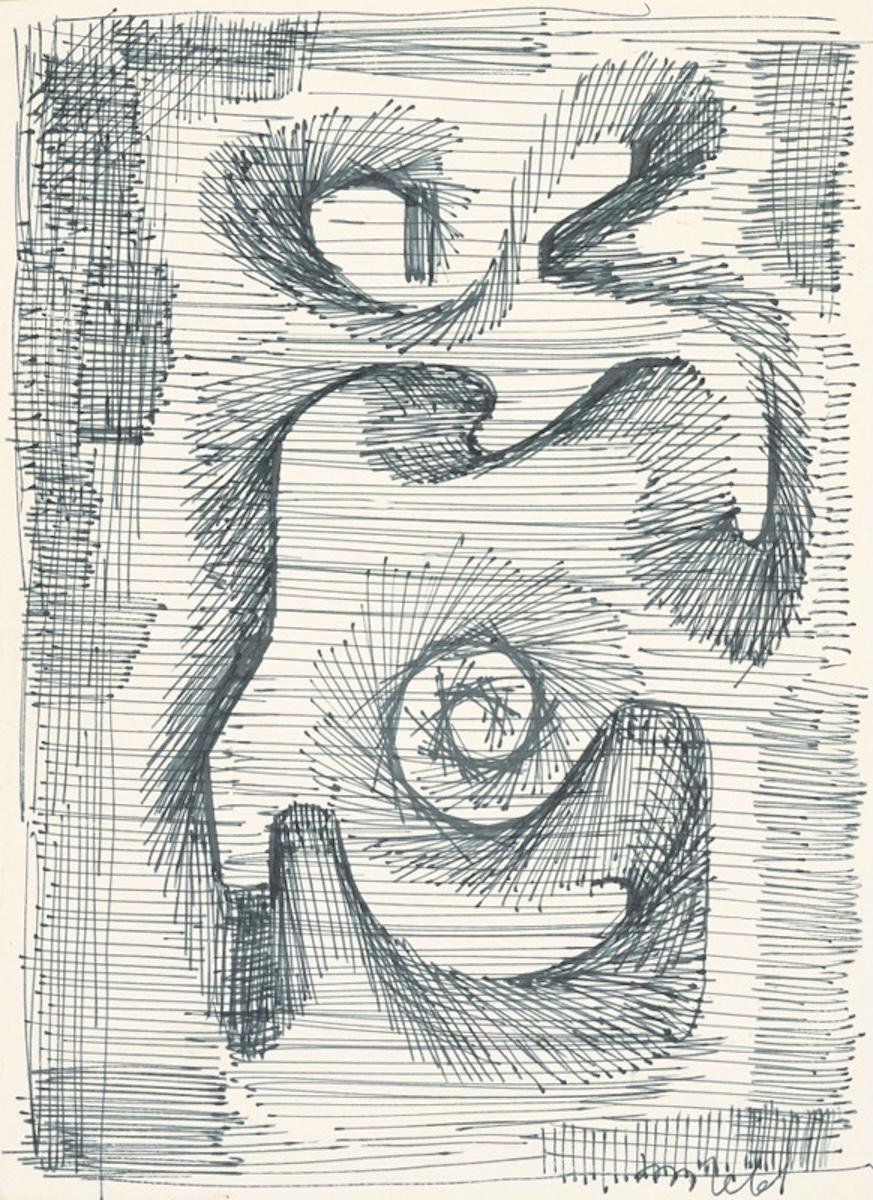
6.3.61

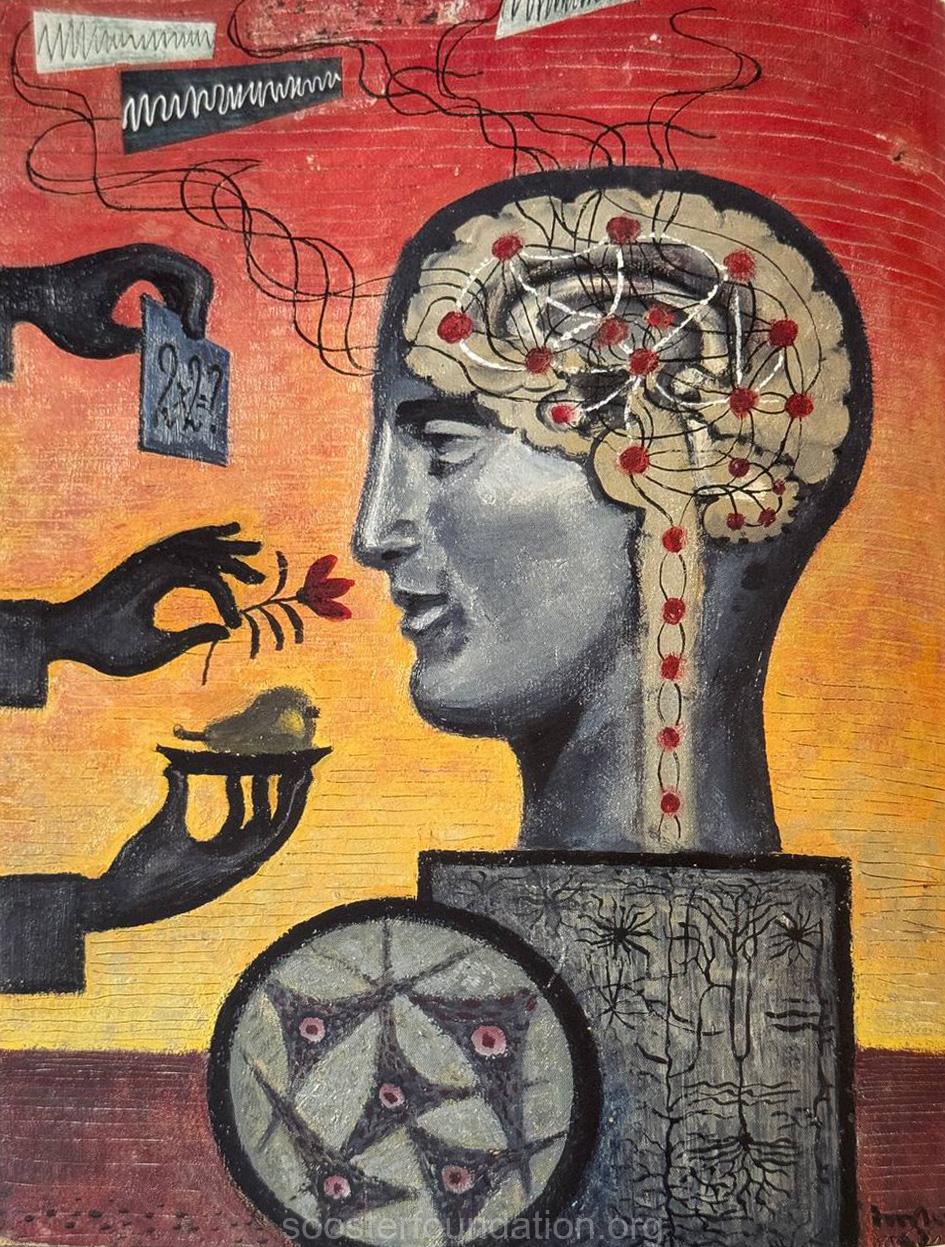
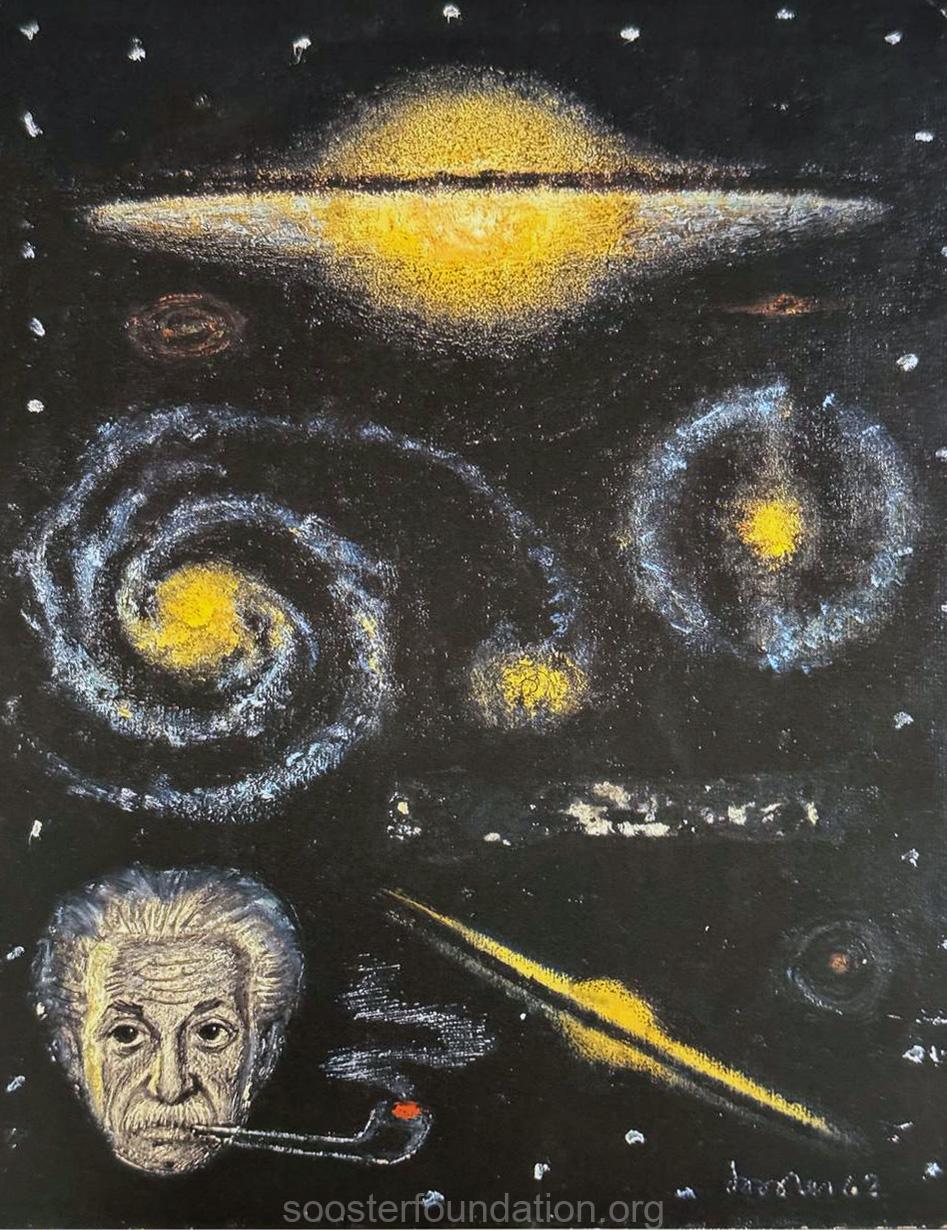
1962
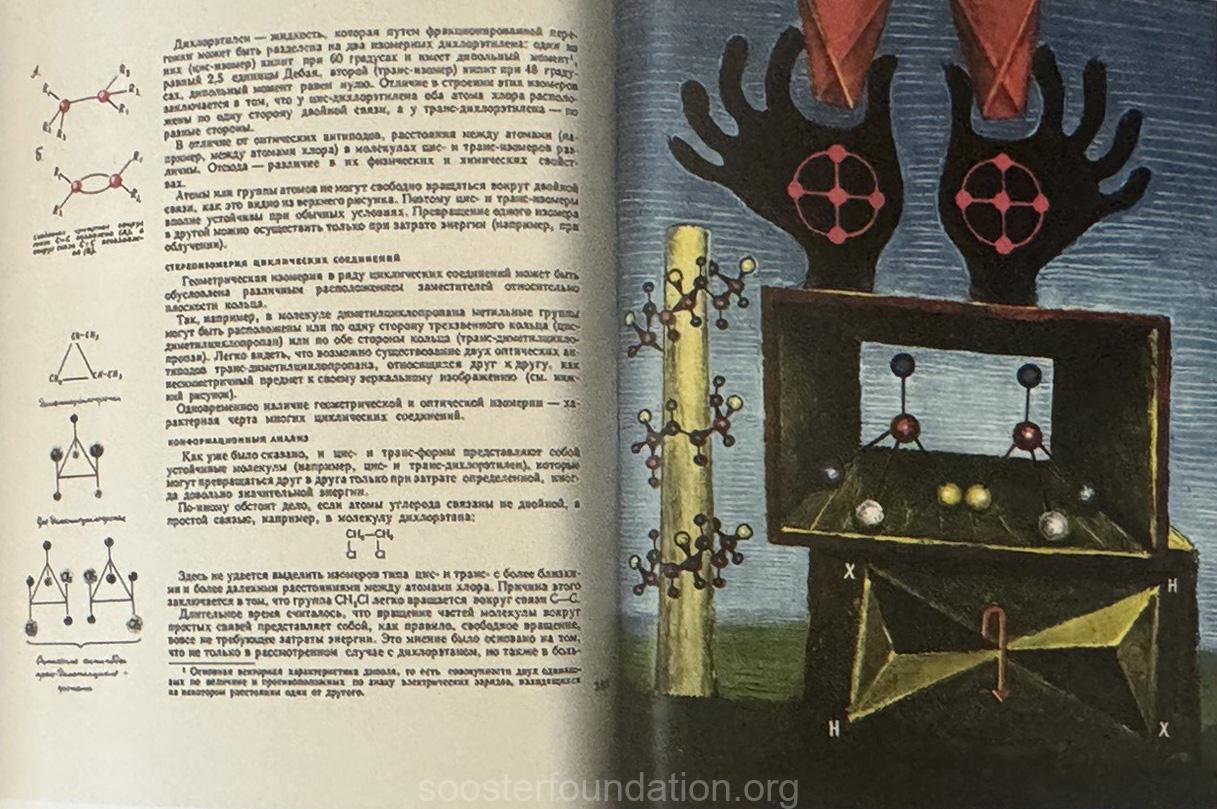
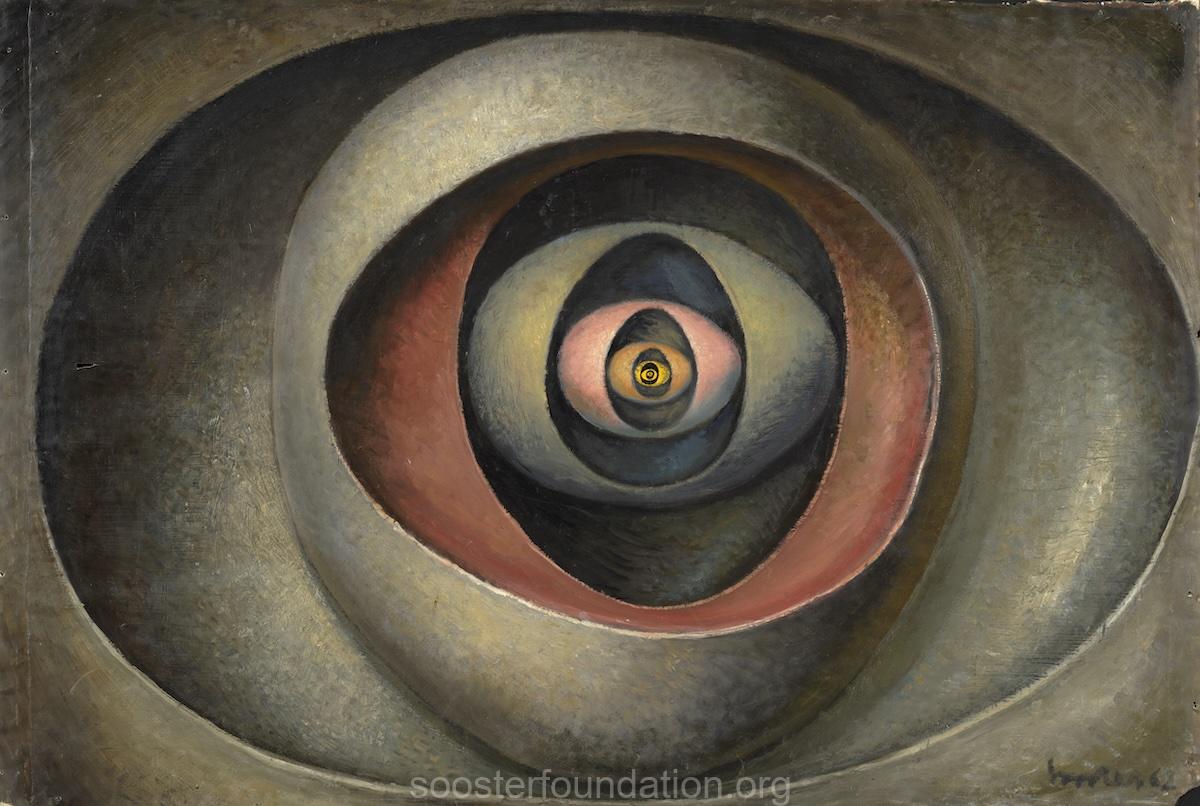

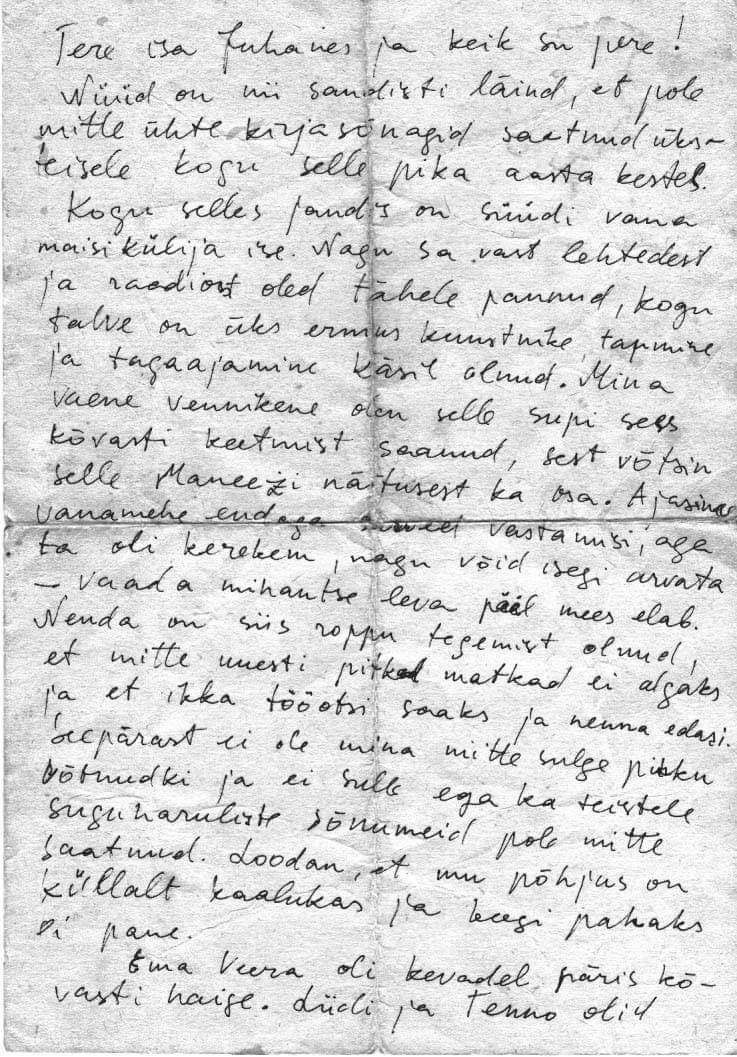
1963-1964
